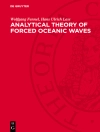This book presents key lessons from community-based risk-reduction practices in Japan, a country that is often hit by disasters and that also has shown strong resilience in coping with those disasters. Japan has a strong governance system for disaster risk reduction. However, the Kobe earthquake of 1995 showed the importance of community involvement in disaster response as well as recovery. With several examples from different parts of Japan, the book elaborates on the importance of community-based risk reduction and the innovations required for sustaining some of the community approaches. The book has 13 chapters and is divided into three parts: (1) Evolution of community-based risk reduction in Japan; (2) Community-based risk-reduction issues; and (3) Case studies.
The primary target groups for this book are students and researchers in the fields of environment, disaster risk reduction, and climate change studies. The book provides them with a good idea of the current research trends in the field and furnishes basic knowledge about these vital topics. Another target group comprises practitioners and policy makers, who will be able to apply the knowledge collected here to policy and decision-making.
Table des matières
Disaster Risk Reduction and Community Approaches.- Kobe Earthquake: Turning Point of Community-based Risk Reduction in Japan.- Typhoon, Flood and Landslide Related Disasters in Japan: Role of Communities.- Social Capital in Disaster Recovery in Japan: An Overview.- Concepts and Approaches of School-centered Disaster Resilient Communities.- Building Disaster Resilient Community through Healthcare Networking.- Roles of Community Radio in Disaster Management: Reflections from Japan.- Community Development and Disaster Preparedness in a Depopulated Society: Case of Tosashimizu City, Kochi Prefecture.- Traditional Community-based Disaster Management in World Heritage Site of Shirakawa Village.- Community Practices of Transmitting Daily and Disaster Information in Reihoku Area.- Community Resilience after Chuetsu Earthquake in 2004: Extinction or Relocation?.- Issues and Challenges of Temporary Housing in Post 3.11 Kesennuma.- Adapting Fisheries to Climate Change: Community-based and Scientific-oriented Fisheries Management of Saroma Lake, Hokkaido.
A propos de l’auteur
Rajib Shaw is an Associate Professor in the Graduate School of Global Environmental Studies of Kyoto University, Japan. He worked closely with the local communities, NGOs, governments and international organization, including United Nations, especially in the Asian countries. He is currently the Chair of the United Nations Asia Regional Task Force for Urban Risk Reduction. His research interests are: community based disaster risk management, climate change adaptation, urban risk management, and disaster and environmental education. He has published several books in the field of disaster and environmental management. He is also the Chief Editor of Asian Journal of Environment and Disaster Management.












